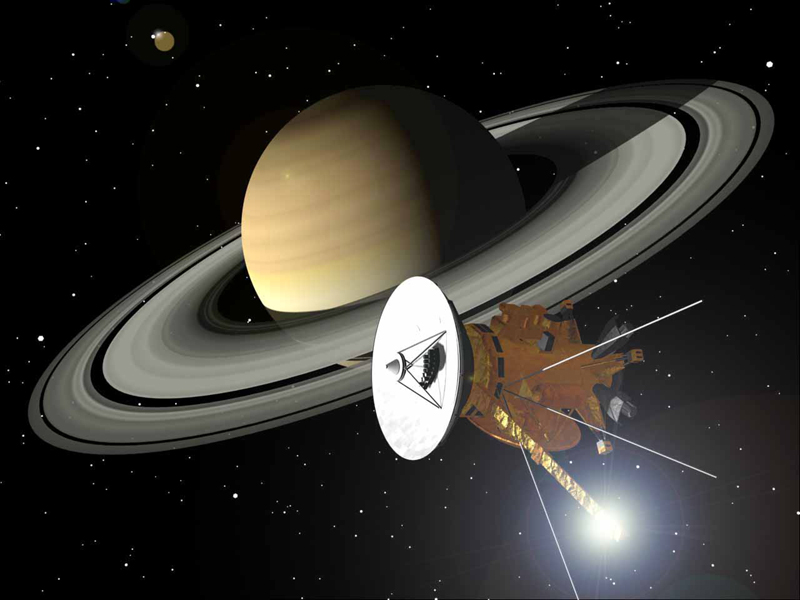Isaac Newton - His Life

Think of Isaac Newton and you'll probably think of an apple dropping on his head. That's not complete nonsense, because the thinking that led to his theory of gravitation was stimulated by seeing an apple fall in the orchard. But it didn't land on his head.
Isaac Newton was born in Woolsthorpe in the English county of Lincolnshire on what was Christmas Day 1642 (January 4, 1643 on the modern calendar). His father was a prosperous farmer who died before his son was born. Born prematurely, Isaac was also expected to die, but fortunately for science, he survived.
When Isaac was three, his mother Hannah remarried. She went to live with her new husband, the Reverend Barnabus Smith, leaving the child to be brought up by her parents.
Isaac disliked and resented his stepfather, so visits to his mother and half-siblings were difficult. He wouldn't have grieved when Reverend Smith died in 1753 and Hannah returned to Woolsthorpe. It's not surprising that Isaac was an isolated and introverted child. Yet it may seem surprising that he was an indifferent student at The King's School in Grantham where school reports describe him as “idle” and “inattentive”.
When Isaac was seventeen, his mother decided he should leave school, become a farmer and manage her land. Twice widowed, Hannah had become quite wealthy. Alas, Isaac had no interest at all in farming or in estate management. Luckily, his mother was persuaded to send him back to school. This time Isaac worked hard and the school worked to prepare him for university.
In 1661 Newton went to Trinity College Cambridge to study law. At the time, the philosophy of Aristotle (384-322 BCE) was still the foundation of the curriculum. This didn't appeal to the young man who wanted to study modern philosophers, Galileo's astronomy and the heliocentric (Sun-centered) idea of Copernicus. He also became interested in, then enthralled by, mathematics, which he began to study in depth.
Certainly his Cambridge education was useful, and he read widely. Yet even when he got his degree, there was no hint of the brilliance to come. It seems that what he needed was time to himself to take what he knew and do some thinking. Although Isaac probably would not have decided to take a gap year, plague was spreading, and the university closed for two years. He spent those two years in Woolsthorpe and this is where the ideas that led to the invention of calculus and the theory of gravitation began to gel.
Upon returning to Cambridge, Newton was elected to a minor fellowship in Trinity College. His mathematics so greatly impressed Isaac Barrow, the first Lucasian Professor of Mathematics, that Barrow retired early, recommending that Newton be appointed in his place. In 1669 Newton became the second holder of one of the world's most prestigious academic posts. (In more recent times Stephen Hawking held this professorship for thirty years.)
But the new appointment created a problem for Newton. The University of Cambridge was a religious institution, and fellows and professors had to be ordained. Isaac Newton was devoutly religious, but his views were unorthodox, and he didn't want to become a minister of the established church. As there was no deadline on the ordination, Newton had been putting it off. However there was no postponement of ordination for professors.
Newton found a possible escape clause. In order for the Lucasian professor to have more time to devote to science, the holder was specifically excluded from taking an active church role. Somehow Newton managed to persuade King Charles II that this meant he shouldn't be ordained, and he was exempted.
Newton's work was brought to the attention of the Royal Society, and in 1672 he was elected to membership. In 1684 he sent the Royal Society the paper that would be the heart of his great work on celestial mechanics Philosophiae Naturalis Principia Mathematica. The final work was published in 1687, with the encouragement and financial aid of his friend Edmond Halley.
Unhappily, Newton was a difficult man. Even when he was wealthy and honored, he remained a private and insecure individual. He suffered from depression and had a breakdown in 1693. Newton also carried on fierce personal arguments with other scientists. The most famous one followed his accusation that German mathematician Gottfried Leibniz (1646-1716) stole his work and claimed credit for the invention of calculus. Historians generally agree that Newton and Leibniz developed calculus independently.
In 1703 Newton was elected president of the Royal Society, and he served until his death. He was knighted by Queen Anne in 1705.
Although Newton is known as a scientist, he actually spent the last third of his life as Master of the Mint. He was given this job in 1699. Despite the important title and good salary, it was a sinecure, not intended to involve any work. Nonetheless Newton took it very seriously, resigning from his university duties. He was committed to maintaining the integrity of the currency, prosecuting counterfeiters and working tirelessly against corruption in the Royal Mint. In 1717 he established the gold standard in Britain.
Newton was briefly engaged in his teens, but he never married. In later years he lived with a niece and her family. Despite his fame, he lived a simple life and gave much of his estate to his family.
Isaac Newton was a dominant figure in European science. When he died on March 31, 1727 (modern calendar) he was buried in Westminster Abbey. Despite his defensive insistence on receiving credit for his work, he also admitted the influence of his intellectual predecessors, famously saying “If I have seen further, it is by standing on the shoulders of giants.”
Isaac Newton was born in Woolsthorpe in the English county of Lincolnshire on what was Christmas Day 1642 (January 4, 1643 on the modern calendar). His father was a prosperous farmer who died before his son was born. Born prematurely, Isaac was also expected to die, but fortunately for science, he survived.
When Isaac was three, his mother Hannah remarried. She went to live with her new husband, the Reverend Barnabus Smith, leaving the child to be brought up by her parents.
Isaac disliked and resented his stepfather, so visits to his mother and half-siblings were difficult. He wouldn't have grieved when Reverend Smith died in 1753 and Hannah returned to Woolsthorpe. It's not surprising that Isaac was an isolated and introverted child. Yet it may seem surprising that he was an indifferent student at The King's School in Grantham where school reports describe him as “idle” and “inattentive”.
When Isaac was seventeen, his mother decided he should leave school, become a farmer and manage her land. Twice widowed, Hannah had become quite wealthy. Alas, Isaac had no interest at all in farming or in estate management. Luckily, his mother was persuaded to send him back to school. This time Isaac worked hard and the school worked to prepare him for university.
In 1661 Newton went to Trinity College Cambridge to study law. At the time, the philosophy of Aristotle (384-322 BCE) was still the foundation of the curriculum. This didn't appeal to the young man who wanted to study modern philosophers, Galileo's astronomy and the heliocentric (Sun-centered) idea of Copernicus. He also became interested in, then enthralled by, mathematics, which he began to study in depth.
Certainly his Cambridge education was useful, and he read widely. Yet even when he got his degree, there was no hint of the brilliance to come. It seems that what he needed was time to himself to take what he knew and do some thinking. Although Isaac probably would not have decided to take a gap year, plague was spreading, and the university closed for two years. He spent those two years in Woolsthorpe and this is where the ideas that led to the invention of calculus and the theory of gravitation began to gel.
Upon returning to Cambridge, Newton was elected to a minor fellowship in Trinity College. His mathematics so greatly impressed Isaac Barrow, the first Lucasian Professor of Mathematics, that Barrow retired early, recommending that Newton be appointed in his place. In 1669 Newton became the second holder of one of the world's most prestigious academic posts. (In more recent times Stephen Hawking held this professorship for thirty years.)
But the new appointment created a problem for Newton. The University of Cambridge was a religious institution, and fellows and professors had to be ordained. Isaac Newton was devoutly religious, but his views were unorthodox, and he didn't want to become a minister of the established church. As there was no deadline on the ordination, Newton had been putting it off. However there was no postponement of ordination for professors.
Newton found a possible escape clause. In order for the Lucasian professor to have more time to devote to science, the holder was specifically excluded from taking an active church role. Somehow Newton managed to persuade King Charles II that this meant he shouldn't be ordained, and he was exempted.
Newton's work was brought to the attention of the Royal Society, and in 1672 he was elected to membership. In 1684 he sent the Royal Society the paper that would be the heart of his great work on celestial mechanics Philosophiae Naturalis Principia Mathematica. The final work was published in 1687, with the encouragement and financial aid of his friend Edmond Halley.
Unhappily, Newton was a difficult man. Even when he was wealthy and honored, he remained a private and insecure individual. He suffered from depression and had a breakdown in 1693. Newton also carried on fierce personal arguments with other scientists. The most famous one followed his accusation that German mathematician Gottfried Leibniz (1646-1716) stole his work and claimed credit for the invention of calculus. Historians generally agree that Newton and Leibniz developed calculus independently.
In 1703 Newton was elected president of the Royal Society, and he served until his death. He was knighted by Queen Anne in 1705.
Although Newton is known as a scientist, he actually spent the last third of his life as Master of the Mint. He was given this job in 1699. Despite the important title and good salary, it was a sinecure, not intended to involve any work. Nonetheless Newton took it very seriously, resigning from his university duties. He was committed to maintaining the integrity of the currency, prosecuting counterfeiters and working tirelessly against corruption in the Royal Mint. In 1717 he established the gold standard in Britain.
Newton was briefly engaged in his teens, but he never married. In later years he lived with a niece and her family. Despite his fame, he lived a simple life and gave much of his estate to his family.
Isaac Newton was a dominant figure in European science. When he died on March 31, 1727 (modern calendar) he was buried in Westminster Abbey. Despite his defensive insistence on receiving credit for his work, he also admitted the influence of his intellectual predecessors, famously saying “If I have seen further, it is by standing on the shoulders of giants.”
You Should Also Read:
Gravity - Cosmic Glue
Edmond Halley
Copernicus - the Revolution

Related Articles
Editor's Picks Articles
Top Ten Articles
Previous Features
Site Map
Content copyright © 2023 by Mona Evans. All rights reserved.
This content was written by Mona Evans. If you wish to use this content in any manner, you need written permission. Contact Mona Evans for details.







